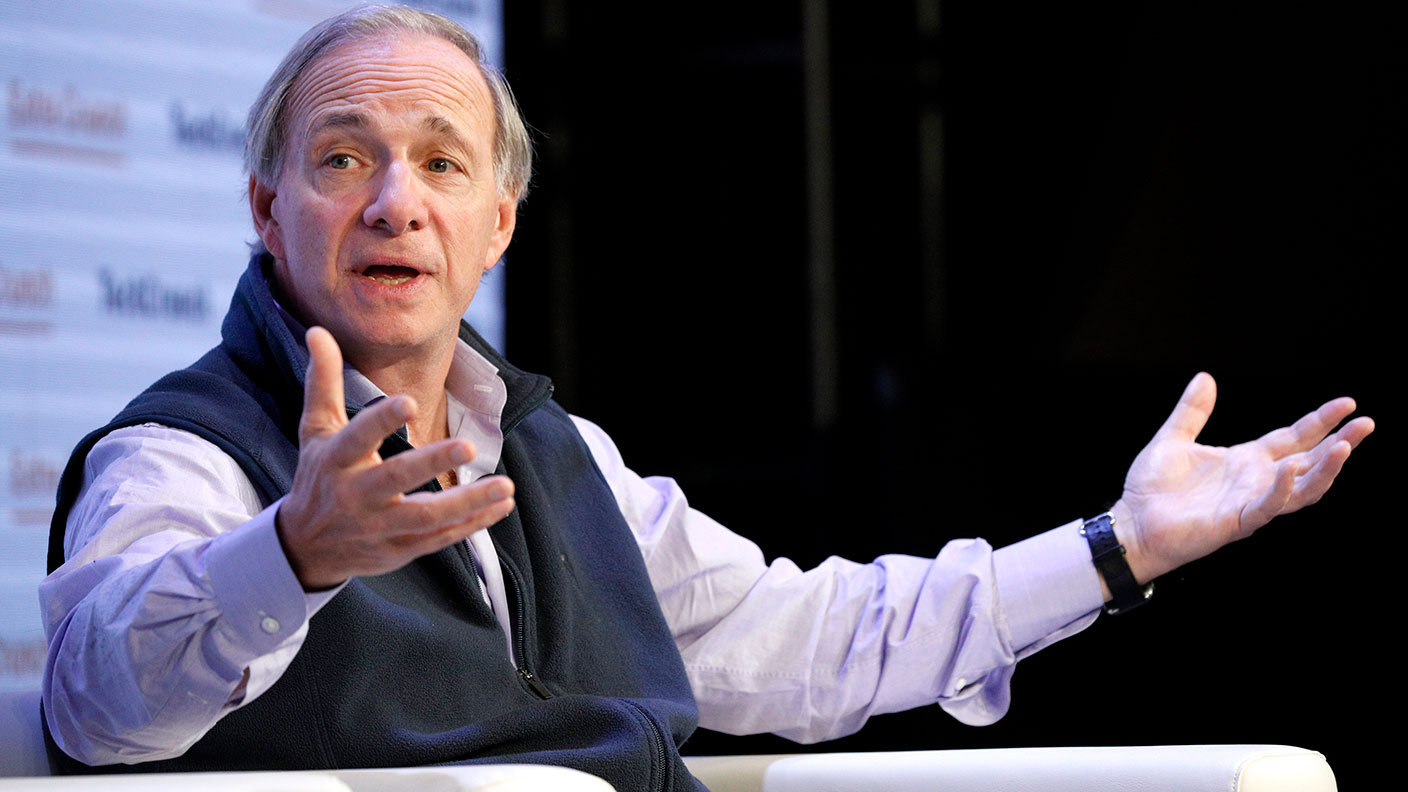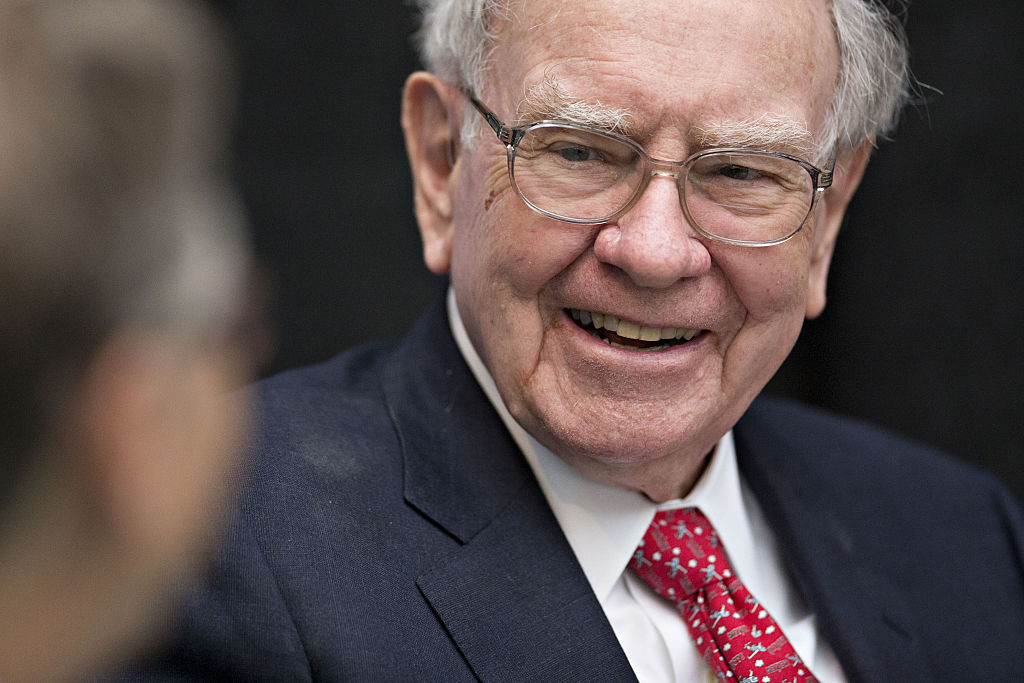“The economics of investing in bonds has become stupid”
Ray Dalio, one of the world’s most successful hedge fund managers, says that investing in bonds right now is “stupid”. But why, and what does he suggest instead? John Stepek investigates.


Get the latest financial news, insights and expert analysis from our award-winning MoneyWeek team, to help you understand what really matters when it comes to your finances.
You are now subscribed
Your newsletter sign-up was successful
Want to add more newsletters?

Twice daily
MoneyWeek
Get the latest financial news, insights and expert analysis from our award-winning MoneyWeek team, to help you understand what really matters when it comes to your finances.

Four times a week
Look After My Bills
Sign up to our free money-saving newsletter, filled with the latest news and expert advice to help you find the best tips and deals for managing your bills. Start saving today!
“The economics of investing in bonds (and most financial assets) has become stupid”. That’s the latest message from Ray Dalio, one of the world’s most successful hedge fund managers.
Dalio is the founder of Bridgewater Associates, which is one of the most successful hedge fund groups in the world. That doesn’t mean Dalio gets everything right any more than Warren Buffett gets everything right. But it does indicate that his opinion is worth at least a listen.
So what’s he suggesting instead?
MoneyWeek
Subscribe to MoneyWeek today and get your first six magazine issues absolutely FREE

Sign up to Money Morning
Don't miss the latest investment and personal finances news, market analysis, plus money-saving tips with our free twice-daily newsletter
Don't miss the latest investment and personal finances news, market analysis, plus money-saving tips with our free twice-daily newsletter
The bond bull market might already be over
The bond bull market of the past 40 years may well be over. The real (after-inflation) yield that you can get on bonds is the lowest ever right now, says Dalio. If you buy most developed-world sovereign bonds then “you will be guaranteed to have a lot less buying power in the future”.
The big risk now is that the world owns a great deal of this debt, just at the time when it’s more overpriced than ever before. This is all part of a very long cycle, notes Dalio, which has been driven to its climax by the efforts of governments to spend their way out of the Covid-19 recession.
Moreover, there’s another cycle at play – that of today’s superpower, the US, being challenged by a rising power, China. It’s the fact that the US has been top dog for such a long time that has “allowed the US to overborrow for decades”. US dollar bonds account for “over a third of global bond holdings”. A long way behind that, you have euro-denominated bonds.
Today however, China is on the rise as a competing superpower. And increasingly, big international investors are starting to put some money into Chinese bonds. Not much – “only about 6% of allocations in global portfolios” – but it’s a start.
This reflects a lot of different factors, including the fact that Chinese bonds yield more. But it’s also because the Chinese financial system is developing, and because the clear long-term desire of the Chinese authorities is to internationalise the yuan, and turn it into a reserve currency.
To my mind, that has interesting political ramifications beyond the whole “rise of empires” thing. Can China really internationalise the currency while maintaining the level of control over the economy and its own population that it desires? I’m not sure. That’s probably one reason why it’s so keen on digitising the yuan as well. But this is all a separate story for another day.
In any case, Dalio makes the point that we’ve got all of these big issues coming to a head right now. There are a limited number of ways for central banks and politicians to manage it. And that will have a big impact on investors.
So what can you invest in now?
Now, it’s worth bearing in mind that plenty of people thought that Japanese government bonds couldn’t go any lower in the 1990s and 2000s, and they did. So, while high-conviction pieces like this can be very compelling reads, you have to remember that lots of confident forecasts end up going nowhere.
But given where we are right now, I also think it’s a mistake to dismiss what seem like extreme views. It’s very difficult for us to see how far we’ve already come in terms of what would have seemed “unthinkable” at the start of this century. Central banks printing money? Unthinkable. Governments sending money direct to individuals? Unthinkable.
What’s the next “unthinkable” thing that will happen? Well, one very obvious option is for central banks to ignore inflation and instead use their money-printing and regulatory powers to hold yields on debt down, while the owners of said debt pay a huge inflation tax.
There is also, says Dalio, the risk of capital controls (in other words, you won’t be able to send your money around the world as easily because it’ll be needed at home) and also much higher taxes. He’s writing for a US audience primarily, but it’s easy to see all of these things applying to most developed economies - potentially.
So what on earth can you invest in at this point? Dalio concludes that “a well-diversified portfolio of non-debt and non-dollar assets along with a short cash position is preferable to a traditional stock/bond mix that is heavily skewed to US dollars”.
What does that mean? Overall, Dalio is saying that you shouldn’t have as much exposure to bonds as might once have been deemed traditional. He’s also arguing that US investors shouldn’t have as much exposure to the US dollar as they probably do.
For UK-based and private investors, this take isn’t quite as helpful. Dalio isn’t keen on cash because he thinks it’ll be devalued. To my mind though, all private investors need cash because of the “optionality” (that’s a fancy word for flexibility) it gives you. So I wouldn’t worry about that too much.
In terms of bonds, as I’ve said before, no one gets everything right. But it’s certainly not a good time to be “overweight” them in your portfolio.
In the “real” assets side of things – we are keen on UK stocks right now because they’re cheap relative to the rest of the developed world. I’d also still be keen to hold some money in gold – despite the risks of capital controls – because we’re not there yet (and it’s worth noting that unlike the US in the 1930s, the UK has never made owning gold illegal)
Also note that Dalio is specifically bullish on Asian emerging countries versus “assets in the mature developed reserve currency countries”. We have an in-depth piece on one very specific and dynamic emerging Asian country – Vietnam – and how to invest in it, in the current issue of MoneyWeek magazine.
If you’re not already a subscriber, get your first six issues – plus a beginner’s guide to bitcoin – absolutely free here.
Get the latest financial news, insights and expert analysis from our award-winning MoneyWeek team, to help you understand what really matters when it comes to your finances.

-
 Should you buy an active ETF?
Should you buy an active ETF?ETFs are often mischaracterised as passive products, but they can be a convenient way to add active management to your portfolio
-
 Power up your pension before 5 April – easy ways to save before the tax year end
Power up your pension before 5 April – easy ways to save before the tax year endWith the end of the tax year looming, pension savers currently have a window to review and maximise what’s going into their retirement funds – we look at how
-
 The Stella Show is still on the road – can Stella Li keep it that way?
The Stella Show is still on the road – can Stella Li keep it that way?Stella Li is the globe-trotting ambassador for Chinese electric-car company BYD, which has grown into a world leader. Can she keep the motor running?
-
 How to beat Warren Buffett – and the fund and trusts that have managed it
How to beat Warren Buffett – and the fund and trusts that have managed itWarren Buffett has achieved stellar returns for investors over a long and illustrious career. Can you rival his investment performance?
-
 Fractional shares: what are they and why HMRC is worried?
Fractional shares: what are they and why HMRC is worried?Investors who have flocked to investment apps offering fractional shares in an Isa could lose the tax-free status of their portfolios.
-
 Halifax: House price slump continues as prices slide for the sixth consecutive month
Halifax: House price slump continues as prices slide for the sixth consecutive monthUK house prices fell again in September as buyers returned, but the slowdown was not as fast as anticipated, latest Halifax data shows. Where are house prices falling the most?
-
 Rents hit a record high - but is the opportunity for buy-to-let investors still strong?
Rents hit a record high - but is the opportunity for buy-to-let investors still strong?UK rent prices have hit a record high with the average hitting over £1,200 a month says Rightmove. Are there still opportunities in buy-to-let?
-
 Pension savers turn to gold investments
Pension savers turn to gold investmentsInvestors are racing to buy gold to protect their pensions from a stock market correction and high inflation, experts say
-
 8 ways to profit from Japan’s recovery
8 ways to profit from Japan’s recoveryCorporate reform, normalising monetary policy and cheap valuations make Japanese equities a top long-term bet, says Alex Rankine.
-
 Where to find the best returns from student accommodation
Where to find the best returns from student accommodationStudent accommodation can be a lucrative investment if you know where to look.